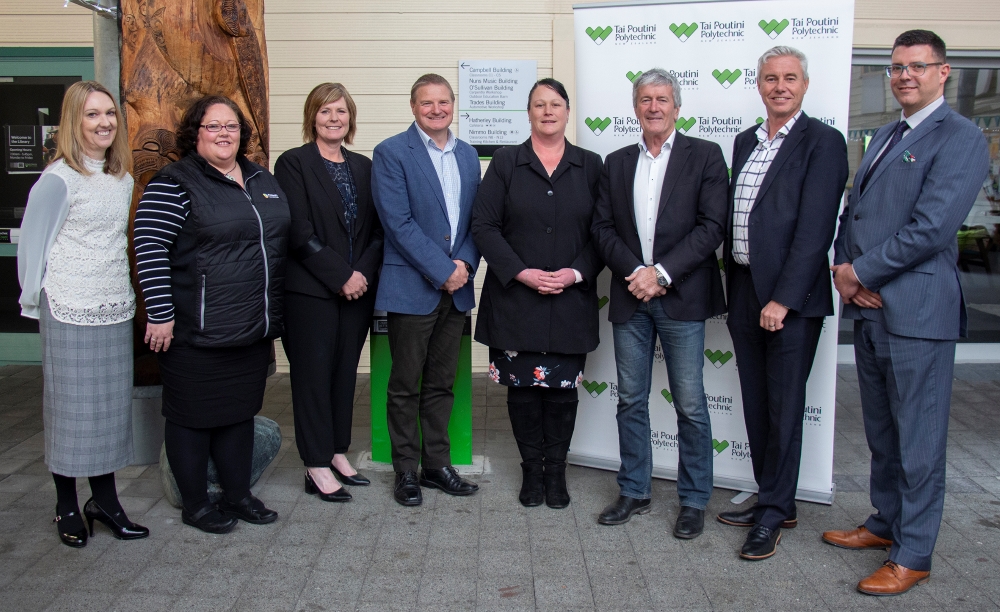Agricultural training pilot makes it easier for West Coast students to get jobs
19 February 2021
An innovative West Coast education initiative aims to get more agriculture learners in jobs more quickly by giving them better training options.
In a collaboration between Primary ITO and Tai Poutini Polytechnic (TPP), the pilot initiative will see 12 people studying for a New Zealand Certificate in Agriculture, sharing their time between the two tertiary education providers.
The pilot programme will see both organisations work together as part of the wider re-imagining of vocational learning in Aotearoa. The initiative meets the objectives of Te Pūkenga, the new national vocational training body, to put learners at the centre, work together at a regional level and explore new ways to benefit West Coast learners, employers, industry and the wider community.

Primary ITO Executive General Manager Andrea Leslie says the key difference to other programmes will be that learners can seamlessly move between learning at the polytechnic, to on the job, or back to the polytechnic without disrupting their studies.
Traditionally, learners at polytechnics are full-time or part-time students, while trainees and apprentices learn mainly on the job with industry training organisations (ITOs).
Under the pilot, learners will end up with the same qualification and have access to the same tutors and facilities whether they’re learning while they work, or at the polytechnic, says Andrea.
“It gets exciting where a TPP student gets a job in the industry while they’re still studying. Then they can continue with their qualification uninterrupted through Primary ITO. Likewise, if a Primary ITO learner leaves their job, they can still study at TPP.
“This is a real improvement to what we’ve seen in the past where people can fall through the cracks if they either move into fulltime work – or even if they lose their employment.”
TPP Project Manager Vikki Roadley says the aim of the joint initiative is to help get students into full-time employment in the agricultural industry.
“By working together, we can offer learners a seamless transition between work and study. If they are studying at TPP and find a job, they can start right away without losing momentum. Likewise, if the job they’re working on ends, they can continue their TPP training.
“We know this has been a problem in the past so we’ve worked with Primary ITO to come up with a solution. It’s a good initiative that makes sense for the learners and for us.
“We’re able to pursue partnerships and collaboration like this under the new Te Pūkenga model that puts learners at the centre. The pilot is an exciting first step and we can see it being hugely successful here and right around the country. We believe this model will provide valuable insights for Te Pūkenga as its new national operating model is developed.”
As part of the pilot programme, Primary ITO’s local West Coast Training Adviser is now based at TPP. With her industry engagement, that could also lead to employment opportunities for polytechnic students.
“It really is a very big win for the West Coast,” Andrea says. “It helps ensure that vocational education is regionally accessible. Ideally, both on-the-job and polytechnic learners come into class for that camaraderie and learning, but if they can’t they won’t miss out as the new joint learning system is all available online.”
The programme is also module-based, with each part designed as manageable “chunks” of learning which can be done in the order that best suits the learner. As an example, a new worker starting out on a dairy farm in the summer might choose to learn about milking and milk quality, and then move into other issues like calving and feeding during other times of the year.
For more information contact:
Tai Poutini Polytechnic Leader – Engagement Mequa Hourston 027 237 5844 or mequah@tpp.ac.nz
Primary ITO Colin Marshall 027 286 0737 or colin.marshall@primaryito.ac.nz
